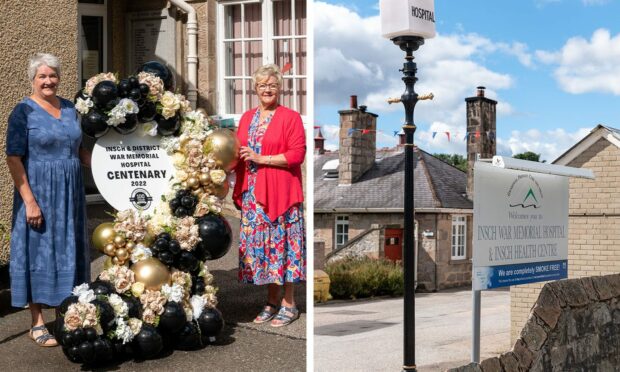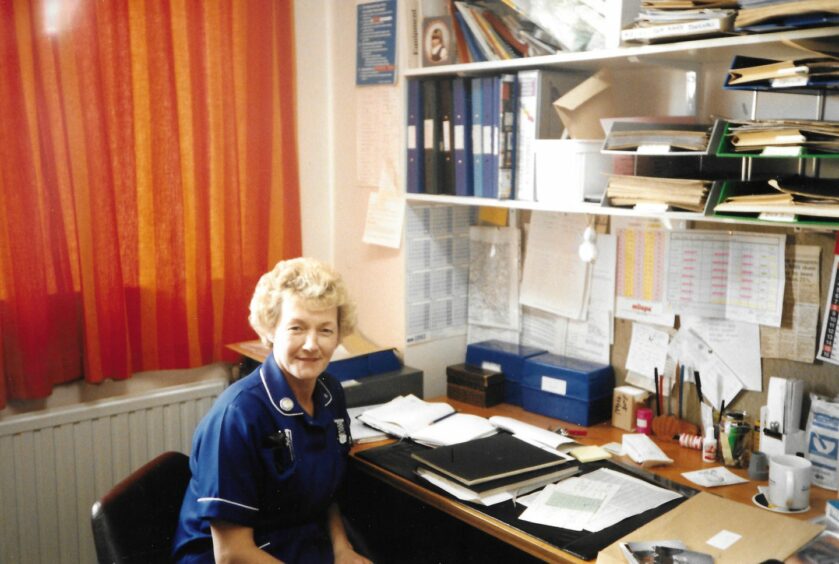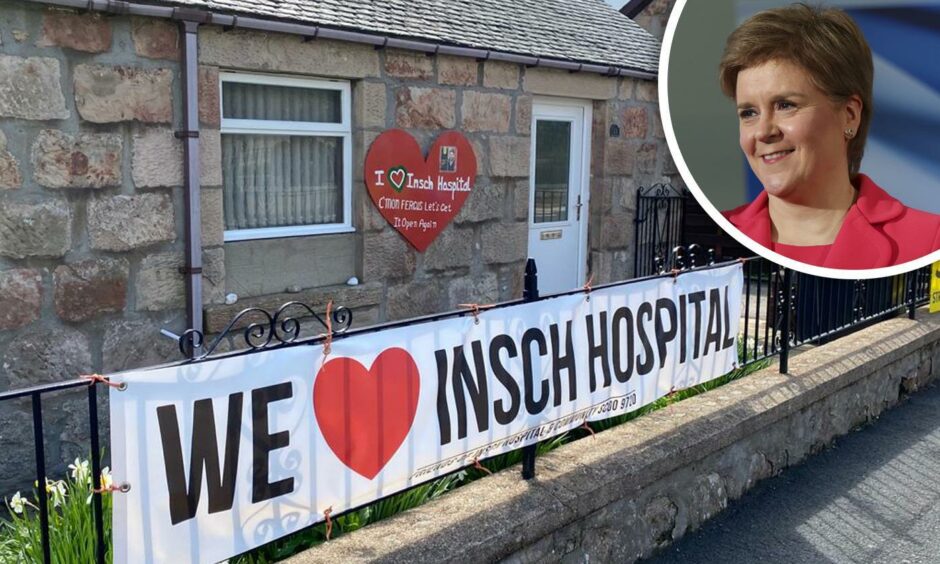Isobel Moir has seen many changes during her long career as a north-east nurse.
The NHS may have continually evolved with advances in medicine and technology.
But the one element that has never changed is the personalised care you receive at a community hospital.
Isobel started working at Insch and District War Memorial Hospital in 1968 and has many fond memories of caring for patients.
She says community nurses get to know families well in the area and, in many cases, looked after patients until the end of their lives.
Isobel recalls how nurses were once a jack of all trades, dealing with all sorts of conditions from casualty injuries to helping women give birth.
‘Many lives were saved’
“It was a very exciting, fulfilled life,” she says. “You knew a little about everything.
“GPs and nurses were skilled in many different kinds of treatments.
“We had patients with severe injuries and life-threatening illnesses; patients with breathing difficulties where you needed to use an oxygen nebuliser.
“Many lives were saved without having to go to big A&E departments.”
Staff at the hospital have cared for many different patients since it opened its doors in Insch in August 1922.
The facility has served as a minor injury unit, a labour ward and a place providing palliative care.
The work of the nurse…
Nurses working there in the past made sure the equipment was in good condition as well as caring for the patients.
Every night they made up dressings from gauze swabs to treat patients with wounds.
And during nightshifts they had to stoke up the AGA cooker to make sure the porridge was ready in time for breakfast.
Bed pans had to be heated before use and kept shiny like new.
And before sterilising units were invented, hospital staff used a sluice with a big hole.
What did Isobel enjoy most about the role?
Isobel has fond memories of using bars of carbolic soap, a mild antiseptic bar widely used in hospitals, because she loved the smell.
But her favourite part of her work was helping all the patients.
“I think the fondest memories are of the births, and the people who you were able to help to get home,” she says.
“Then there were the people who you were able to help to die peacefully.”
Isobel highlights how important it is for patients and their families to get access to close-to-home care.
Patients recovering from surgery benefit from rehabilitation care after being transferred from Aberdeen Royal Infirmary to a community hospital.
And families don’t have far to travel to visit their loved ones when they are receiving end-of-life care.
It’s comforting for patients to be treated by someone who either knows them or is acquainted with their way of life.
“It’s quite easy to talk to them really because you’re a member of the community and almost like part of their family,” she said.
Insch Hospital’s future still uncertain
Isobel retired from her nursing role in 2004 and is now involved with the Friends of Insch Hospital and Community group.
The charity has played a key role in keeping the health facility running over the years and is now campaigning to keep it open.
It has been closed since the start of the pandemic and the Aberdeenshire Health and Social Care Partnership says the current hospital no longer complies with current healthcare standards.
The future of the building remains uncertain although a decision was taken recently to develop a wellbeing hub on the site.
Isobel, who still tends to the plants in the hospital garden, says it’s important local residents get access to the health care they need.
“As a community, we really want to help and we want to work with the NHS,” she added.
And although the Friends are fond of the historic building, they’re keen to point out that it’s the hospital service they’re most keen to keep in the local community.
“Our main concern is looking after the health of the community, that’s what it is all about.” Isobel says.
“Of course we would like a hospital back in Insch – it’s very dear to my heart.”




Conversation